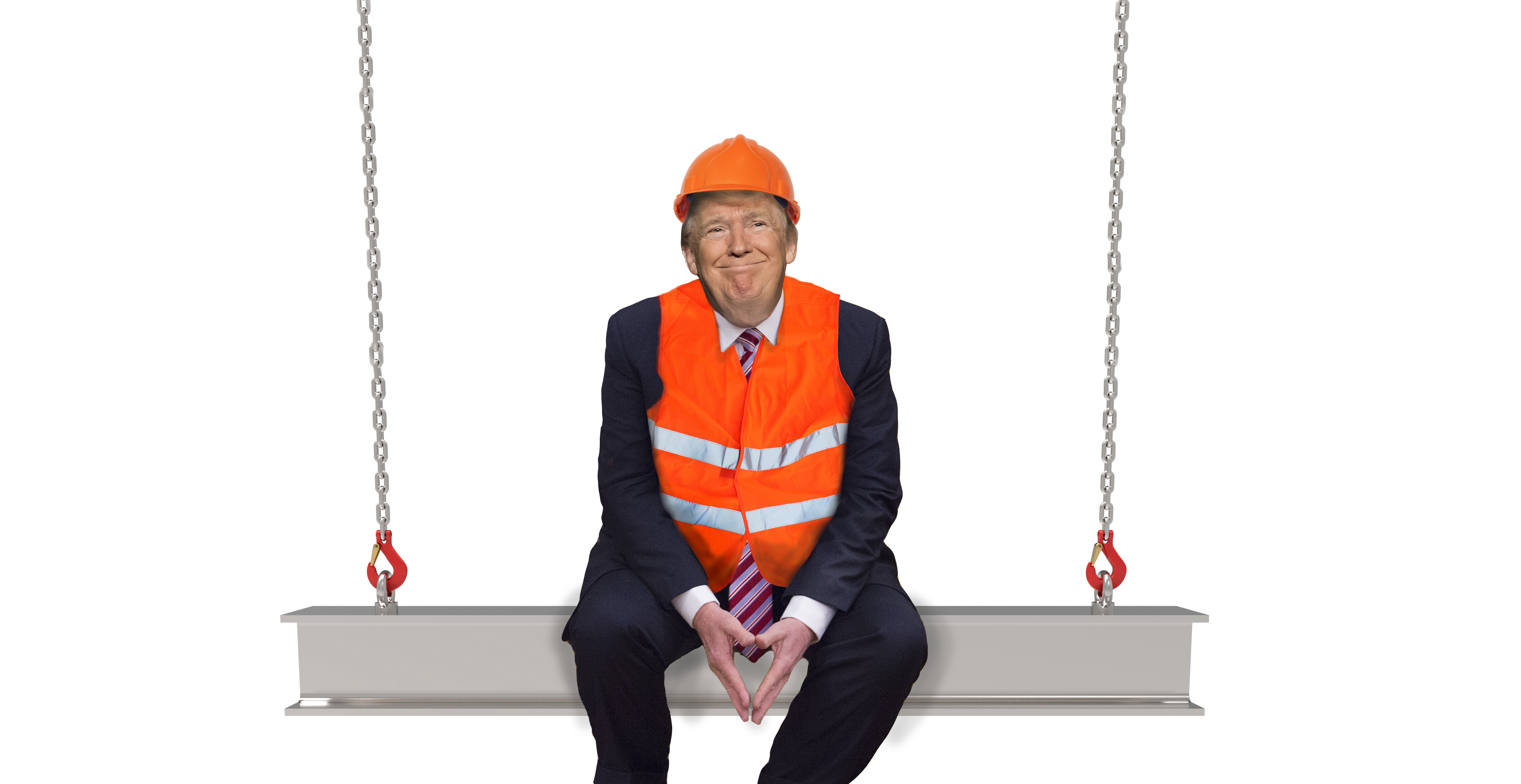Trump's tariffs are working
It's almost like a policy designed to bring about X is making X happen


A free daily email with the biggest news stories of the day – and the best features from TheWeek.com
You are now subscribed
Your newsletter sign-up was successful
Can you believe that tariffs imposed on the importation of foreign steel and aluminum are forcing some American companies to purchase those metals here instead of from suppliers based abroad? I mean, good gracious. It's almost like a policy designed to bring about X is making X happen.
In other words, President Trump's steel tariffs are working. (They are not, however, helping to pay down our federal deficit as an added bonus, despite his bizarre claims to the contrary.)
This is something that you would probably not take away from the media coverage of the administration's trade policy, which has focused instead on groan-inducing connect-the-dots pseudo-muckracking and the supposed woes of millionaire corporate farmers who are used to getting cheap equipment in addition to their subsidies and other annual bribes from American taxpayers. Thanks to retaliatory tariffs on pork imposed by China, some pig farming mavens in this country say they will be cutting back production. This is not because their business is becoming unprofitable, only slightly less lucrative. Incredibly wealthy hog tycoons might reduce slightly less of our green and pleasant land to seas of fetid pink post-organic liquid poop that can be seen from space. Isn't this something we should all be happy about?
The Week
Escape your echo chamber. Get the facts behind the news, plus analysis from multiple perspectives.

Sign up for The Week's Free Newsletters
From our morning news briefing to a weekly Good News Newsletter, get the best of The Week delivered directly to your inbox.
From our morning news briefing to a weekly Good News Newsletter, get the best of The Week delivered directly to your inbox.
My response to all these stories about poor Harley-Davidson and the rest is "So what?" The fact that not everyone stands to gain from a given policy is not in itself an argument against it. Costs and benefits must always be weighed. This a lesson that surely ought to have been learned by defenders of the Affordable Care Act, who shrugged when it did not turn out to be the case that plans and other coverage options such as the choice of doctors or facilities remained untouched or that costs fell or stayed the same — in fact, they have increased precipitously. If, like me, you agree that at least some aspects of the legislation, such as the guaranteed provisions made for such pre-existing "conditions" as fertility and the expansion of Medicaid, justified its passage, you were right to shrug. The same cost-benefit analysis ought to be applied to Trump's tariffs. Besides, our whining farmers are getting a bailout anyway — and every American corporation just got a huge tax cut. Stop carrying water for these people.
For mostly cynical reasons — it's the opposite of what Trump says, ergo, it's bad — support for free trade has suddenly become a dogma. Since when was this prudential question, one that has traditionally divided the Democratic and Republican parties alike, an article of faith for all right-thinking persons? Why are the concerns of everyone from environmental and labor activists at home and abroad to progressive economists to Pat Buchanan to a certain Democratic presidential candidate in 2008 beneath notice?
The debate over Trump's attempts to rebalance American trade relations with East Asia, Europe, and our North American neighbors and to revive vital national industries, such as steel and aluminum, has been one-sided. Why can't we have an argument about free trade on the merits? If you think that globalized capitalism has been a boon for everyone, and not just the obvious winners, make that case. Ditto if you seriously think that it is not important to the security of this country and her allies that we have an armaments industry that does not depend upon foreign steel. Isn't combining tariffs with domestic subsidies as Trump has done industrial policy 101? It is possible that the United States currently produces too much of one or more heavily subsidized agricultural commodities and that shoring up another industry instead could be more valuable even if hurts the bottom lines of some farmers?
Pretending that these are all settled questions and devoting an infinite amount of space to the short-time grievances of self-interested parties who are used to being pandered to in a hundred different ways is a cheap, dishonest tactic, worthy of propagandists.
A free daily email with the biggest news stories of the day – and the best features from TheWeek.com
You might not like the game Trump is playing. But that doesn't mean he isn't winning.
Matthew Walther is a national correspondent at The Week. His work has also appeared in First Things, The Spectator of London, The Catholic Herald, National Review, and other publications. He is currently writing a biography of the Rev. Montague Summers. He is also a Robert Novak Journalism Fellow.
